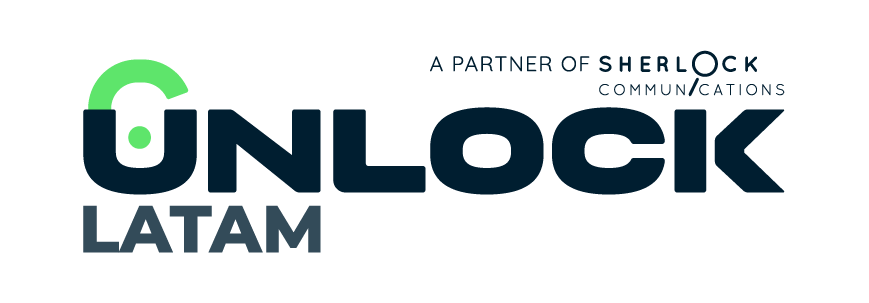AML Compliance: A Must-Have for Fintech Sales in LATAM
In recent years, the fintech industry in Latin America (LATAM) has experienced exponential growth, driven by technological advancements and an increasing demand for financial services. However, with this rapid expansion comes a pressing need for robust Anti-Money Laundering (AML) compliance measures.
As fintech companies strive to gain trust and credibility in a competitive market, understanding and implementing AML regulations is no longer optional; it is essential for sustainable success.
Understanding AML Compliance
AML Compliance involves a set of laws and procedures aimed at preventing financial crimes. In fintech, which often operates with less regulation than traditional banking, the stakes are high. Implementing effective AML measures is crucial for maintaining trust and credibility.
By prioritizing AML Compliance, fintech companies can demonstrate their commitment to safeguarding customer funds and personal information. This not only enhances customer confidence but also fosters loyalty in a discerning market.
Building Customer Trust

Trust is foundational in financial services. Effective AML Compliance practices show customers that their funds and data are secure. This commitment to security can serve as a powerful marketing tool, attracting clients who value transparency.
Moreover, fintech companies can leverage their AML efforts to educate customers, empowering them with knowledge about financial security. This proactive approach positions companies as thought leaders and encourages a culture of compliance.
Mitigating Financial Risks
Non-compliance with AML regulations can lead to severe penalties and reputational damage. For fintech companies in LATAM, the consequences are particularly severe due to regional challenges like corruption and economic instability.
By addressing AML Compliance proactively, fintech businesses can protect their bottom line and minimize the risk of involvement in illicit activities, safeguarding their reputation in a competitive market.
Navigating the Regulatory Landscape
The AML Compliance environment in LATAM is complex, with regulations varying by country. Understanding these differences is crucial for fintech companies operating across borders.
Countries like Brazil, Mexico, and Argentina have specific AML regulations. Fintech companies must stay informed and adapt their strategies to meet these diverse requirements effectively.
Implementing Effective Strategies
To tackle AML Compliance complexities, fintech companies must develop tailored strategies. This includes conducting comprehensive risk assessments and implementing customer due diligence procedures.
Incorporating technology into AML efforts can enhance efficiency. Advanced analytics and AI can streamline transaction monitoring, allowing fintech firms to detect suspicious activities swiftly.

Overcoming Compliance Challenges
Fintech startups often face resource constraints, making it challenging to allocate funds to AML Compliance. Partnering with third-party providers or investing in technology can help streamline processes and reduce costs.
Keeping up with evolving regulations is another challenge. Establishing a dedicated compliance team and providing regular training can ensure that AML practices remain up-to-date.
Future Trends in AML Compliance
As fintech evolves, regulatory scrutiny is expected to increase. Fintech firms must remain vigilant and proactive in their AML Compliance efforts to avoid penalties and reputational damage.
Blockchain technology offers potential for revolutionizing AML Compliance by enhancing transparency and traceability in transactions. Fintech companies adopting blockchain solutions can strengthen their AML efforts and contribute to a secure financial ecosystem.
Unlock the Potential of Your Fintech Business in LATAM
Navigating AML compliance is essential for sustainable growth in LATAM’s dynamic fintech market. As the regulatory landscape evolves, having the right insights and strategies will help you stay ahead. By focusing on compliance, fintech companies can foster trust, mitigate risks, and position themselves as leaders in the industry.
If you’re looking to expand in LATAM, understanding local nuances and building strong relationships is key. Connecting with the right partners and gaining market insights can help you strengthen your compliance practices and drive business growth.

Your Trusted Partner in LATAM Expansion
From market research to legal compliance, we guide your business every step of the way.
Key Metrics to Measure the Success of Outbound Energy Campaigns
Key Metrics to Measure the Success of Outbound Energy Campaigns Running outbound campaigns in Latin America's energy sector without tracking the right metrics is like navigating without a compass. The...
How to Use Case Studies in Outbound Approaches
How to Use Case Studies in Outbound Approaches When entering Latin American markets, trust is everything. Decision-makers want proof that you understand their challenges and can deliver real results. That's...
Lead Segmentation in the Energy Sector: B2B vs B2C
Lead Segmentation in the Energy Sector: B2B vs B2C The energy sector is evolving rapidly across Latin America, driven by renewable transitions and technological innovation. Yet many companies struggle to...



